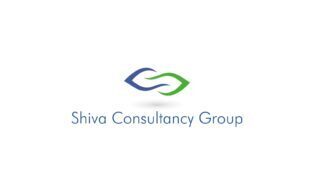Introduction
Compliance costs are a significant concern for Micro, Small, and Medium Enterprises (MSMEs). As regulatory frameworks evolve to be more stringent, the financial and operational burden on these enterprises intensifies. This blog aims to shed light on the various facets of compliance costs in MSMEs and presents feasible strategies to minimize these expenses.
The Cost of Compliance: An Overview
For MSMEs, compliance costs usually manifest in various ways:
- Direct Costs: These include fees for legal advice, license renewals, and regulatory filings.
- Indirect Costs: Man-hours spent on compliance-related tasks, employee training, and software costs.
- Opportunity Costs: Time and resources that could be invested in growth but are instead spent on compliance.
Why MSMEs Feel the Pinch More
- Limited Resources: MSMEs often operate on tight budgets, and unexpected costs can result in substantial setbacks.
- Lack of Expertise: Limited access to legal and compliance experts makes it harder to navigate complex regulatory environments.
- Scaling Issues: As the business grows, the compliance requirements become increasingly complex, adding to costs.
Strategies to Minimize Compliance Costs
Leverage Technology
- Automated Compliance Tools: Use software that can help manage regulatory compliance efficiently, reducing manual errors and saving time.
- Cloud-based Record-keeping: Opt for cost-effective cloud solutions to keep your records in line with compliance requirements.
Streamline Internal Processes
- Training Programs: Regular training can help employees understand the importance of compliance, reducing the risk of non-compliance.
- Internal Audits: Regular self-audits can identify areas of concern before they escalate into more significant issues.
Outsourcing Compliance
- Consulting Firms: Specialized consultancy firms, like Shiva Consultancy Group, can provide tailored solutions to help MSMEs in sectors like agribusiness, mining, and green energy comply with regulations efficiently.
Government Schemes and Grants
- Utilize Subsidies: Various governmental programs offer subsidies and grants aimed at helping MSMEs offset compliance costs.
- Stay Updated: Compliance requirements change; keeping updated ensures you take advantage of any cost-saving measures the government introduces.
A Holistic Approach: The Way Forward
Considering the focus on sustainability and holistic development in business ecosystems, it’s imperative for MSMEs to view compliance not as a burden but as an integral part of business strategy. Organizations that integrate compliance into their operational fabric tend to build stronger reputations and are better positioned for long-term success.
Conclusion
While compliance costs are a challenging aspect for MSMEs, they are unavoidable. By leveraging technology, streamlining internal processes, seeking specialized advice, and staying abreast of governmental schemes, MSMEs can strategically minimize these costs and turn compliance into an asset rather than a liability.
For more tailored advice on compliance strategies, feel free to reach out to us at Shiva Consultancy Group.
Contact:
Mr. Rakesh Jha – Co-Founder Shiva Consultancy Group
Cell: +91 9979021275
Email: rksjha@live.in
Website: http://www.shivagroup.org.in
LinkedIn: linkedin.com/in/rksjha
I hope you find this blog insightful. Your feedback is always welcome.
